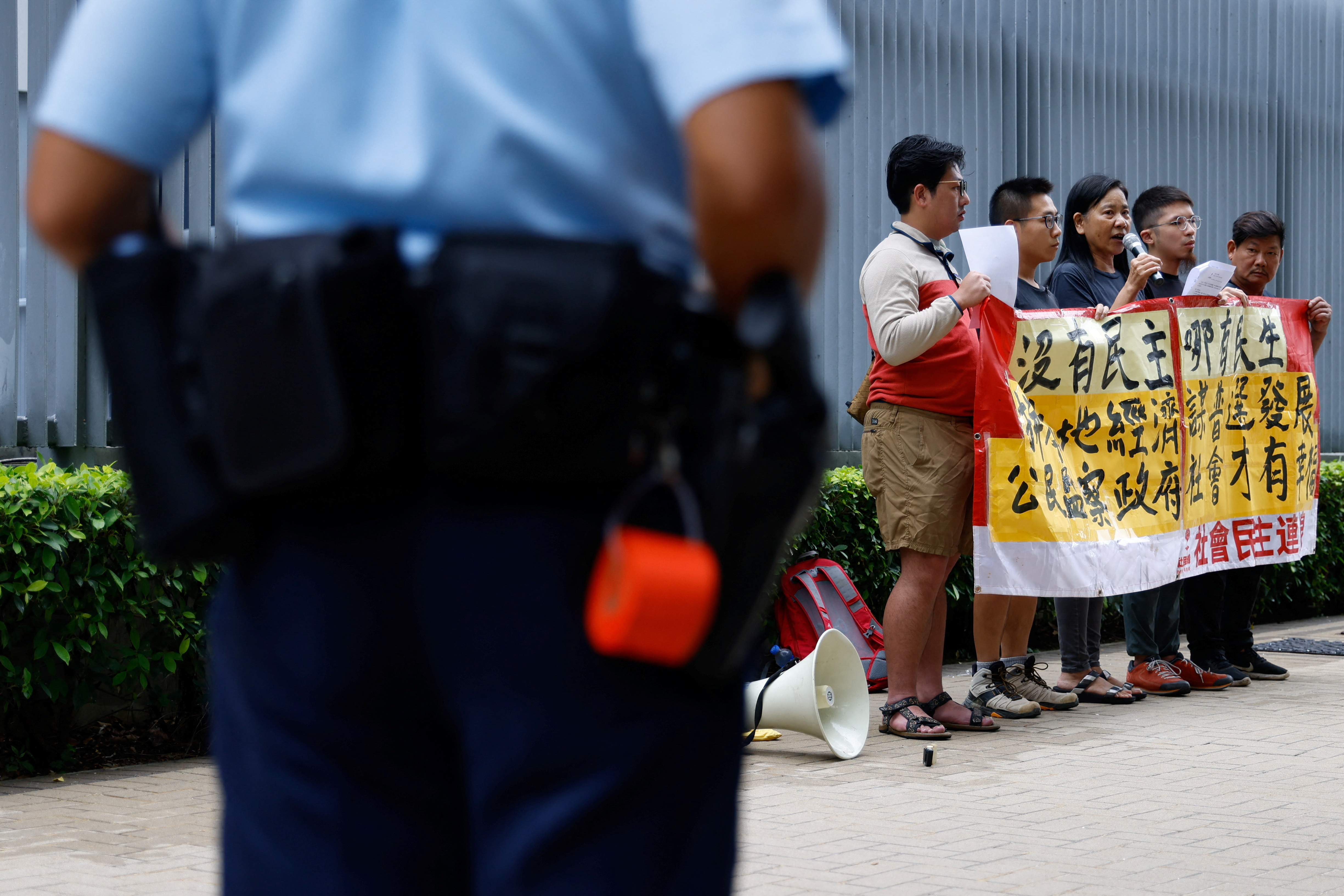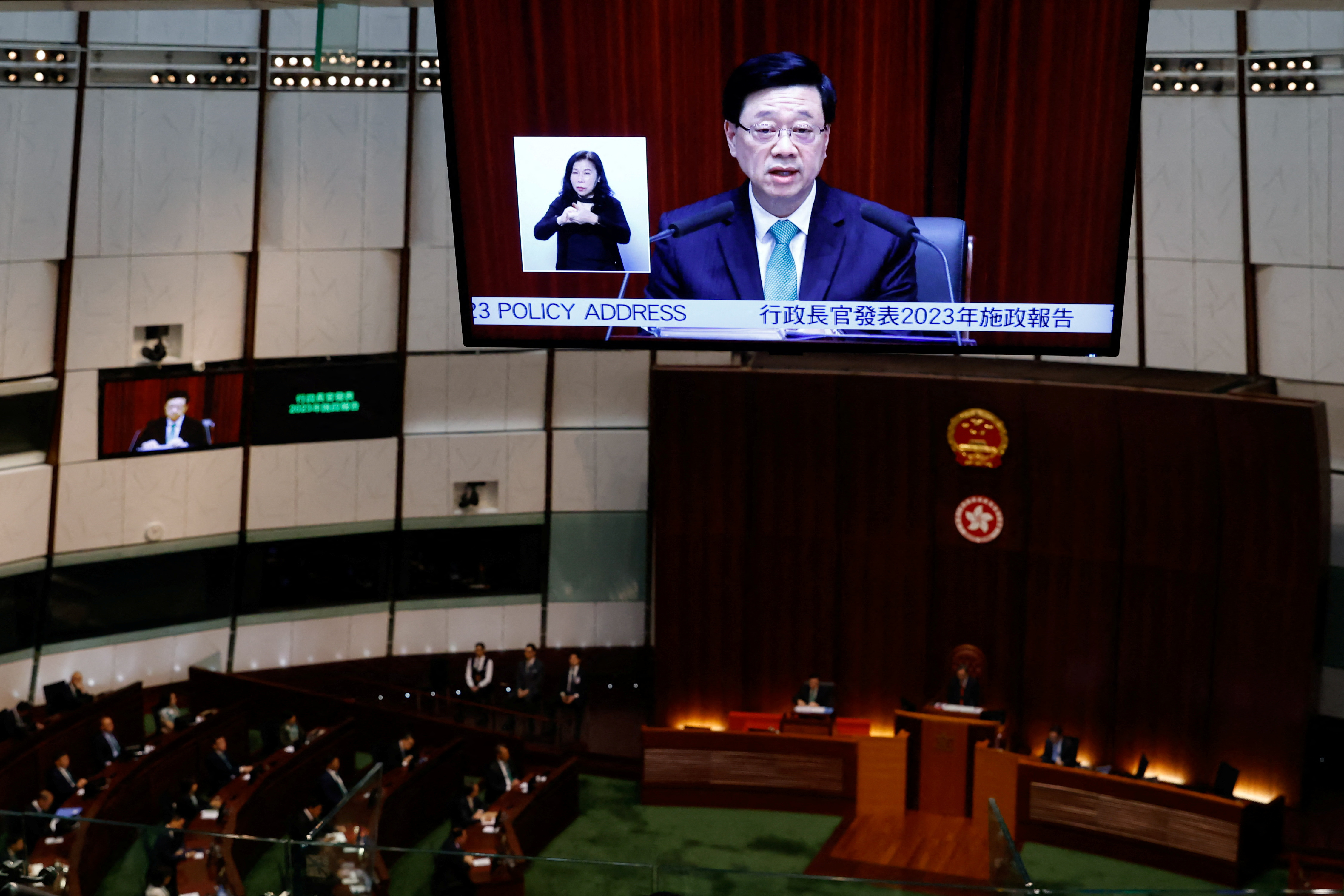
Hong Kong leader John Lee has said the Chinese territory will table its own national security law in 2024, four years after Beijing imposed sweeping legislation that critics say has “decimated” freedoms.
The Chinese law was brought in after hundreds of thousands of people took to the streets in protests that began over an extradition bill with the mainland and developed into demands for more democracy and political freedom that sometimes turned violent.
The broadly worded Beijing law bypassed the local legislature and made acts deemed to be secession, subversion, “terrorism” and collusion with foreign forces punishable with sentences as long as life in prison.
Making his second annual policy speech, Lee said some countries were still trying to undermine Hong Kong.
He did not go into detail.
“We must guard against those seeking to provoke conflict, misinform or spread rumours through different channels, and remain alert to acts of “soft resistance” in different forms that can undermine the governance of our country and the HKSAR (Hong Kong Special Administrative Region),” he said.
Lee, a former top policeman who was security chief during the 2019 protests, added that the government was “pressing ahead” with effective legislative options on security and “will complete the legislative exercise in 2024 to fulfil our constitutional duty”.
Under the Basic Law – the city’s mini-constitution – Hong Kong was supposed to make its own law, known as Article 23, to combat seven security-related crimes, including treason and espionage.

Successive administrations failed to implement the law, however, with the last attempt abandoned in 2003 after half a million Hong Kong people took to the streets in protest.
Beijing’s security law has all but stamped out criticism with pro-democracy politicians and activists going into exile, and civil society groups and critical media outlets shut down.
According to Hong Kong’s Security Bureau, as of the end of September, 280 people had been arrested and 30 convicted under the law.
Since 2019, Hong Kong’s political system has also been overhauled with new rules introduced to ensure only “patriots” are able to run for office, with candidates needing to be “vetted” before being allowed to stand.
A “national security education day” has also been introduced with children as young as six years old taught the “great importance” of the legislation that its supporters say has restored “order” to the city.
Lee said patriotic education would be further developed “to enhance national identity”.
A working group would be created for “taking forward national education and dovetailing with the Patriotic Education Law of the People’s Republic of China”.
His announcement comes a day after Beijing passed a law to strengthen patriotic education for children and families, according to China’s state media.
Hong Kong was promised a high degree of autonomy on its return to Chinese rule in 1997 and the continuation of its way of life for at least 50 years.







